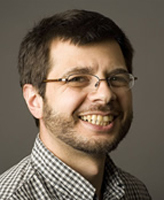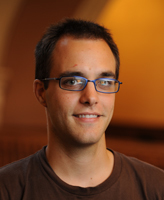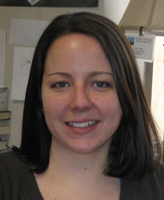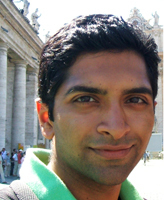
A growing number of Ph.D. students in the University of Notre Dame’s Department of Sociology are attracting attention for their research and publishing papers in leading peer-reviewed journals.
“Students have taken up our challenge to be more ambitious,” says William Carbonaro, associate professor and director of graduate studies for the department, “and the faculty is working closely with them to achieve their goals of publishing in the most prestigious journals.”
Since 2009, the department’s graduate students have published 16 solo papers, four of which appeared in top specialty journals. Another 11 papers included students as the first or second author—including two articles in the top three sociology journals and seven in top specialty journals.
Mastering the Process
Carbonaro attributes this recent success to a department-wide strategy that includes both a stronger commitment to mentoring and a new step in the master’s process—requiring students to defend their thesis proposals before the same committee of three faculty members who must later approve the final paper.
“We found that the quality of the master’s theses has gone up dramatically since we added that extra step in spring 2008,” Carbonaro says.

Doctoral candidate Guillermo Montt, who studies the sociology of education, says he appreciated the additional opportunity to get feedback from committee members. “This way, you also have more suggestions at the beginning of the process and the security of pursuing a feasible and worthwhile project,” he says. “And because it is the master’s thesis, you are very early in your research career and it is helpful to have frequent reviews.”
Once the thesis is complete, students begin the long process of writing and revising and re-revising the material for submission to a professional organization conference and, eventually, into an article suitable for publication. This is another area where mentoring is particularly vital, notes Carbonaro.
The Insider Perspective
“The dual role many faculty play as authors and reviewers themselves means we know both sides of the process,” Carbonaro says. “We teach students not just about the research but about the process of getting a paper published. We teach them how the reviewers think.”
An experienced faculty mentor can help a graduate student sort through the often-conflicting advice from reviewers to determine which revisions will make the most compelling, publishable paper, Carbonaro explains. “You just have to have a feel for that,” he says. “You can’t do everything they ask.”
Working closely with his adviser, Assistant Professor Sean Kelly, Montt was able to turn his master’s thesis into a solo-authored paper in the highly-regarded Sociology of Education. “Cross-National Differences in Educational Achievement Inequality” was published in the January 2011 issue.
He analyzed academic achievement data from dozens of countries to evaluate how the intensity of schooling and the distribution of learning opportunities within each nation’s educational system also impact the size of the gap between the highest and lowest performers.
“Generally, we think of inequality in terms of how your family background impacts your achievement,” Montt says. “Yet inequality due to family background or other ascriptive traits represents only a portion of the total inequality in educational outcomes. My research attempts to provide a broader perspective.”
Mentors and Partners
In addition to working on their own papers, graduate students are able to partner with faculty on a wide variety of research projects. This type of one-on-one mentoring is a priority in the department—and a privilege not always available in larger sociology programs, Carbonaro says.

Since 2007, Carbonaro and Montt, for example, have collaborated on at least seven papers and conference presentations. Doctoral candidate Ellen Childs developed a similar relationship with Assistant Professor Jessica Collett, and the pair published three papers together.
“She helped guide me through the process, not just the research but the whole experience—how to write, send out a paper, incorporate reviewers’ comments. It’s been completely invaluable,” says Childs, who drew on that experience to publish her own solo article. “Religious Attendance and Happiness: Examining Gaps in the Current Literature” appeared in the September 2010 Journal for the Scientific Study of Religion.
This outcome is exactly what faculty mentors are working with students to accomplish, Carbonaro says. “Once students tackle a master’s thesis and go through the process of publishing a paper with us, they become more independent and take more initiative,” he says. “They start to navigate the process on their own because we’ve taught them all the steps involved.”
Published Authors

Another example is doctoral candidate Brandon Vaidyanathan. He has had several articles accepted for journal publication recently, including one for Work, Employment, and Society which examines the attitudes and mobilization potential among call-center workers in India and reveals that the workers are beginning to explore and insist on their rights.
“They’re saying, ‘Look, we’re professionals, and we deserve rights and respect,’” he says. Vaidyanathan, who speaks five languages, also conducts research on the sociology of religion and is working on a dissertation about the role of religion in rapidly globalizing cities in Asia.
His solo paper, “Religious Resources or Differential Returns? Early Religious Socialization and Attendance Decline in Emerging Adulthood,” will be published in the Journal for the Scientific Study of Religion later this year, and a paper he and 2008 Notre Dame Ph.D. Jonathan Hill wrote about religious and secular giving has been accepted for publication in Social Forces—one of the top three journals in the overall field of sociology.
While the journey from the first spark of research inspiration to polished, published paper can be long and sometimes frustrating, Carbonaro says, the payoff is substantial.
“When the best departments are hiring,” he says, “they’re looking for people who have published in the best journals.”


